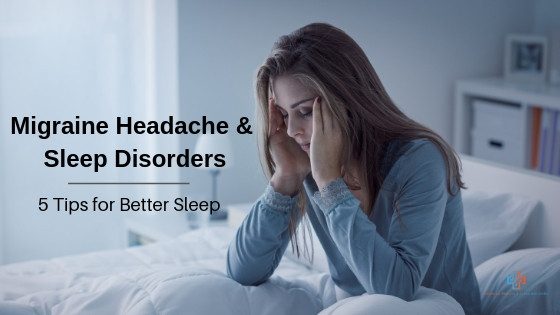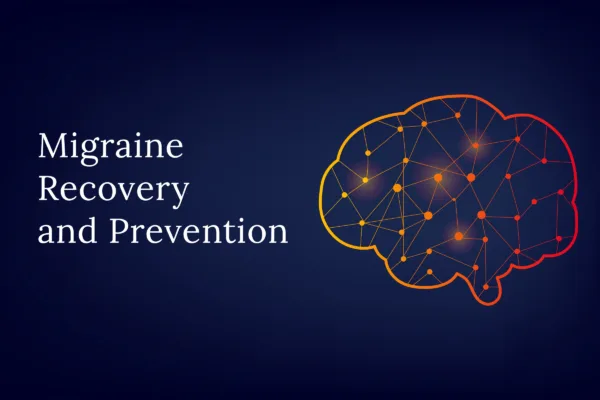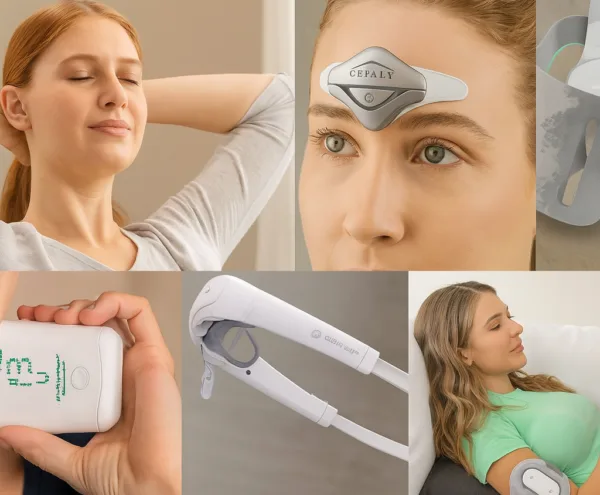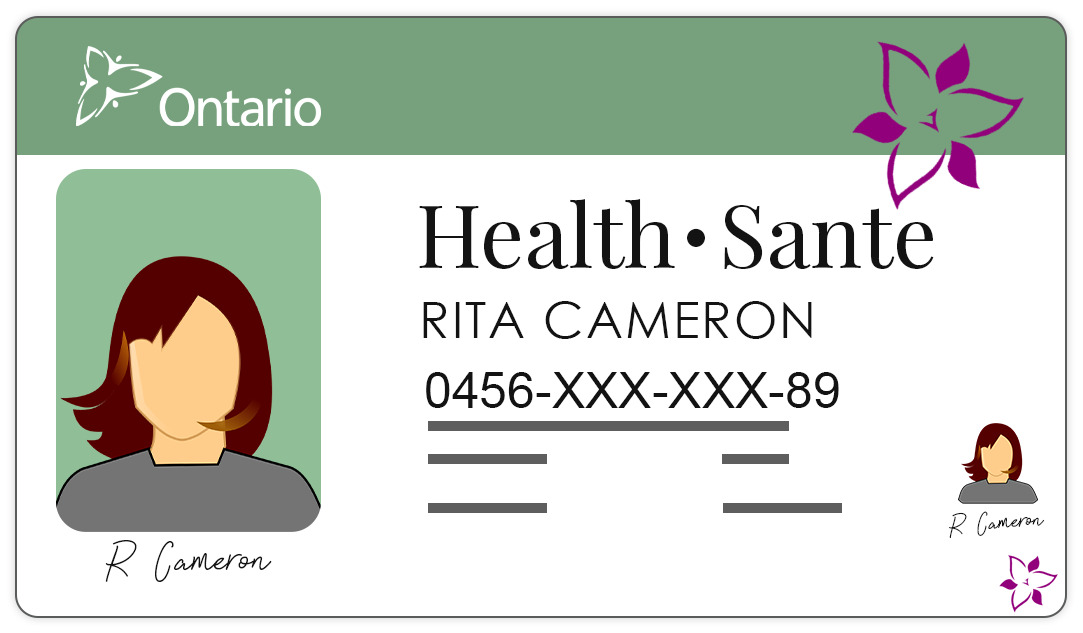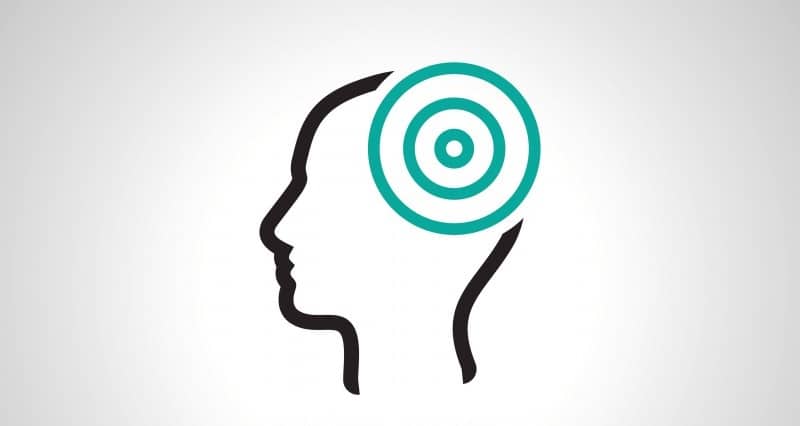Introduction
Sleep disorders are one of the most common and frustrating symptoms of migraines. If you suffer from migraines, you may have noticed that your migraine patterns are also closely linked to your sleep patterns.
Not surprisingly, the severity of sleep disorders in migraine sufferers increases as headaches become more frequent and severe.
Which sleep disorders are linked to migraines?
Insomnia and difficulty with falling asleep are some of the most common sleep complaint among people who suffer from migraine headaches. Insomnia is also associated with conditions common among migraine sufferers, such as depression, anxiety, and medication side effects.
Some of the sleep disorders associated with migraines include the following:
- Excessive daytime sleepiness
- Difficulty maintaining sleep
- Waking up too early in the morning
- Daytime fatigue
- Snoring
- Restless leg syndrome
What is the connection between sleep and migraines?
The connection between migraines and sleep is clear, but what’s not always clear is the causality relationship between the two. Migraines can be triggered by lack of sleep, but they also disrupt healthy sleeping patterns.
Scientists think that migraines and sleep are so interconnected because the same brain areas are responsible for the processes of pain and sleep.
Getting more sleep helps to both manage the pain felt by migraines, and to prevent new migraines. On the other hand, getting too little sleep can make you susceptible to having more migraines, and makes the migraines feel more painful.
Why does lack of sleep cause migraine headaches?
The connection between migraines and sleep is clear, but what’s not always clear is the causality relationship between the two. Migraines can be triggered by lack of sleep, but they also disrupt healthy sleeping patterns. Scientists think that migraines and sleep are so interconnected because the same brain areas are responsible for the processes of pain and sleep.
Migraine sufferers are 8 to 10 times more likely to experience sleep problems.
American Migraine Association
Getting the recommended number of sleep helps to both manage the pain felt by migraines, and to prevent new migraines. On the other hand, getting too little sleep can make you susceptible to having more migraines, and makes the migraines feel more painful.
REM sleep and pain perception
Researchers think that REM sleep specifically is closely linked with migraines. REM sleep is a type of sleep that comes at intervals and involves rapid eye movements, dreaming, faster pulse and breathing. The average person goes through 4-5 sleep cycles each night, and changing between phases of light sleep, deep sleep, and REM sleep.
The majority of people experience the most REM in the second half of the night. People with sleep disturbances, such as insomnia, get less REM sleep, and this can have negative consequences for pain perception. The reason for this is that during REM sleep, the brain releases serotonin and dopamine, which are chemical messengers called neurotransmitters.
These molecules are important in the process of pain perception and pain management. Not having enough of serotonin and dopamine release in the brain can cause heightened pain perception. This is also the reason that sometimes doctors prescribe selective serotonin uptake inhibitors (SSRIs) to individuals who suffer from migraines.
Sleep-related migraine triggers
Sleep disruption, sudden changes in sleep schedule (for example, when travelling to another time zone), and oversleeping are all common triggers for migraine headaches.
According to research, the optimal duration of sleep for adults who suffer from migraines is 7-8 hours a night. Scientists have found that getting less than 6 hours of sleep and also more than 8.5 hours of sleep is associated with increased headache severity.
What are some tips for getting better sleep for migraine sufferers?

If you suffer from migraines, getting more sleep could mean getting fewer headaches that are also less intense in severity.
Here are some helpful tips to get better sleep:
1. Make sure to follow a regular sleep schedule
To regularize your sleep schedule, you need to establish consistent times for going to bed and waking up. Going to sleep and waking up at the same time every day establishes your circadian rhythm, and with time, will help you feel sleepy at your bedtime. To help to train your mind to fall asleep at the right time, you can create a dark, quiet, and calming sleep space.
2. Follow a migraine-friendly diet
A healthy diet can go a long way in helping you sleep better. It is important to avoid caffeine and alcohol, especially in the second half of the day, as they both can disrupt sleep. It is also not good idea to eating heavy meals prior to bedtime, since they may be difficult to digest, and will keep you awake. Eating a diet high in greasy and sugary foods can also interfere with sleep.
3. Set a bedtime routine
Establishing a calming bedtime routine can help to relax your mind and body and make it easier for you to fall asleep. Some effective “bedtime rituals” can involve drinking herbal tea, listening to calming music, meditating, or having a bath with essential oils.
Scientific research has shown that the light from our electronic devices can cause poor sleep. Therefore, it is best to stop using devices such as smartphones and tablets few hours before going to sleep. It is also important to turn off your devices for the night to avoid disruptions from notifications.
4. Keep a migraine journal
It is a good idea to keep a sleep log where you record the approximate number of hours of sleep you got each night. This can help you find out how many hours on average you sleep, and whether lack of sleep is a common migraine trigger for you.
You should also keep a separate migraine diary. There, you can record any other important factors, such as any medication you might be taking, or any stressful events which could serve as migraine triggers.
5. Talk to your doctor
If you suffer from migraines and sleep problems, you should see your health practitioner to get a proper diagnosis. It’s important to do further testing to rule out sleep apnea, which can cause early morning headaches.
The doctor can also do a review of any medication you might be taking, to determine whether your sleep problems are also caused by medication side effects.

